When traveling to another country it is important to read up on the local rules, the local culture and how not to offend the local people. I get that a lot of tourists do not take the time to do this – I live in Dubai, I come in contact with that kind of ignorant people all the time, but to me it following local rules and cultures is a basic form of respect.
Although traveling to Nepal is incredibly easy and people are exceptionally nice and engaging, there are a few points you need to keep in mind when traveling to this amazing country.
I have listed 10 things that you should never EVER do in Nepal.
PS: If you haven’t booked a hotel yet, you might want to start here
Table of Contents
Do not volunteer
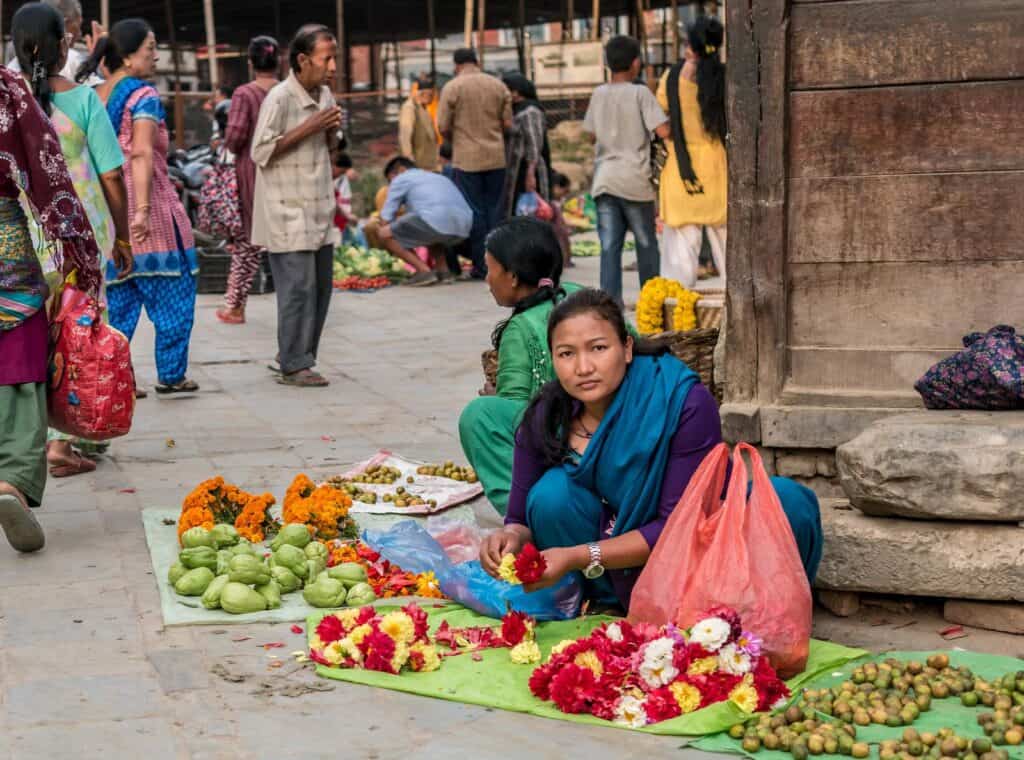
Although you might want to travel to Nepal to help people, volunteering in Nepal might actually do more wrong than good for the local community.
Take teaching in local schools for instance. Why would you, as a westerner without a teaching degree, be a better teacher than a Nepali with a teaching degree? Not to mention the fact that many of these organizations will not provide you with a syllabus which means these kids are often learning the same things over and over again.
What about Orphanage volunteering? Well, if you haven’t heard – Australia has now finally marked Orphanage volunteering as modern slavery. Why? Because many of these kids still have family either in the village nearby or in the mountains. These kids are often just rented out or bought from poor family members to lure in Western tourists with deep pockets.
Okay, but can’t I help by building a school? Sure, but you should think about the fact that you are taking away a job from an unskilled laborer in the area. Why would you, an educated westerner, have to come to Nepal to do the job a poor unskilled laborer could do? Labour is so cheap in Nepal that it is not about the money that a labourer would cost – it is about the money you bring to the organization. Money that the local community will hardly ever see. And that school? Who knows if it will ever be finished…
Honestly, if you want to help the local community in Nepal, do so by being here, enjoying yourself, heading out into the villages and eating there, spending money there… but not by volunteering.
If you want to read more on this please check this very informative article on Voluntourism and why it is a big no-no!
Do not eat beef in front of a Hindu
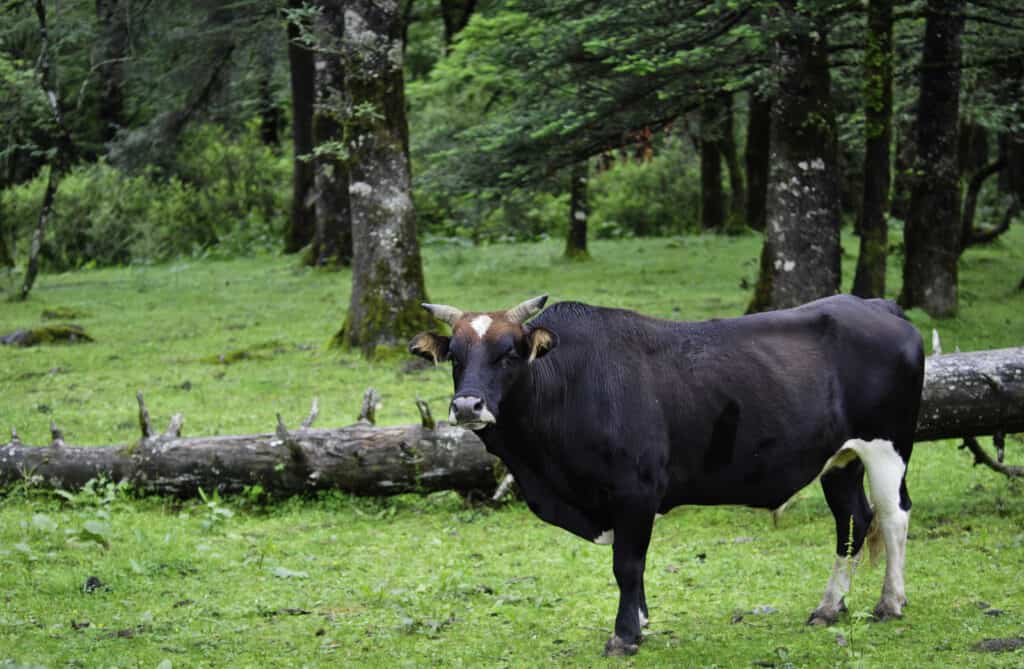
Just like in parts of India, cows are actually sacred in India. Although you won’t really see cows wandering the streets of Kathmandu, you will see them live their lazy lives in temples where they are being kept and fed by local people.
Eating beef is strictly prohibited for both Hindus which means it would be incredibly insulting for you to eat beef in front of them.
In most shops in Nepal you will only find Buffalo meat (Buff), chicken or Mutton (which is actually goat). Pork can be found in supermarkets or at special butcher stalls but overall it is not very easy to find local street food stalls serving pork.
Can you buy beef in Nepal?
Yes. You can buy beef in Nepal. You will, however, need to go to a specialist butcher or an expat shop. There are also quite a few Hallal butchers that sell beef.
Can you eat beef in restaurants in Nepal?
Yes. But not everywhere. There are a few restaurants known for their steaks. Think, for instance, of the Kathmandu Steakhouse or Smoking Yak Steakhouse & Pub in both Kathmandu and Pokhara.
Do not give begging children money
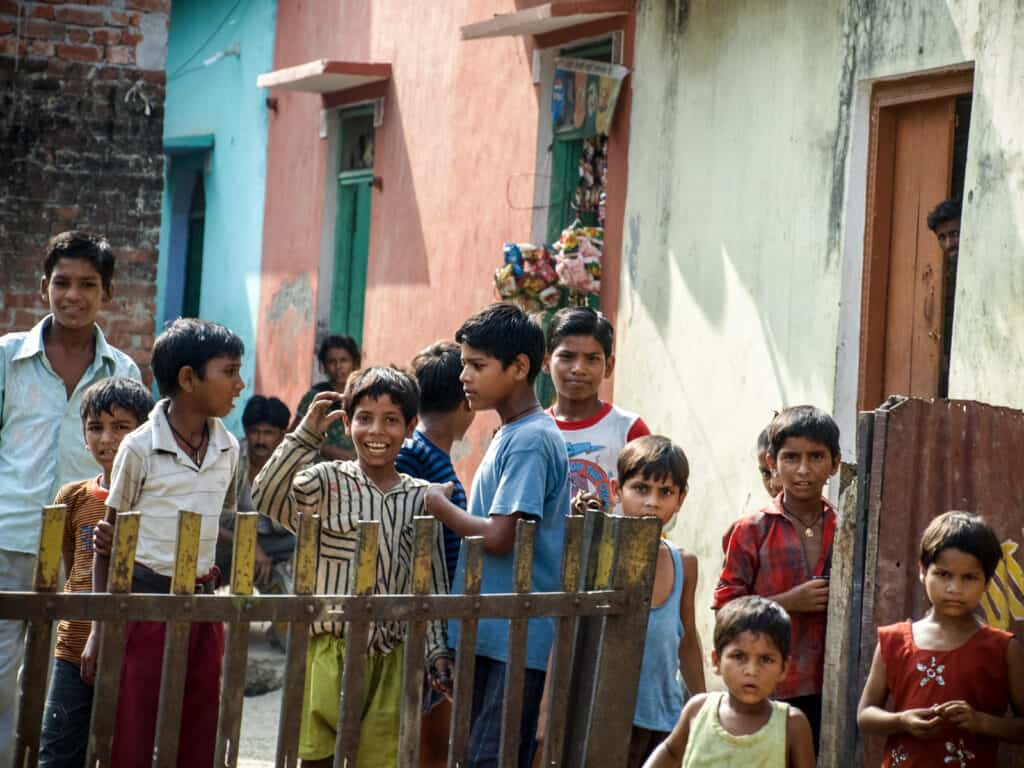
I love children, you love children, we all love children. But that does not mean we should give into kids asking for money – even when it is only one rupee.
I have read many different blogs and websites talking about the growing problem of tourists giving in to these little kids. Many even end up giving them as much as 1000 Rupees – $10 (that’s more than 8 plates of Mo:Mo).
You might feel very good about yourself for a while. After all, you helped a poor kid with a small sum of money. Well – the fact is that children being successful at begging often means that they drop out of school, or are encouraged by their parents that they should take up full-time begging.
Local schools are free in Nepal so every kid has the possibility to get some form of (primary) education. Private schools – even in Kathmandu, already start at 1000 NPR a year.
These begging kids are often sent to busy areas like Thamel and Sanepa by their parents. Have a look around. You will often see a mother or father begging or keeping an eye on their kids down the road. I live in Kathmandu and I see begging kids once or twice a month when a new group passes through the area. In my area the mother or father will often stand or sit just a bit away. Often they will yell across the street to the kid to tell them what to do and one time the mother even pointed at us after which the little girls came running to us.
Giving money to these kids will just perpetuate the problem. As tourists and expats are happy to hand them some money, the parents will keep sending out their kids to beg instead of sending them out to school to learn. Since these kids will grow up uneducated, they won’t be able to keep a job perpetuating the problem once they have kids of their own.
One little Google Search will yield a massive amount of great children’s charities in Nepal that would be very happy with any small donation. If you would like to help kids, please donate to a charity or a school rather than give money to a begging kid.
Do not buy milk or rice for a begging mother
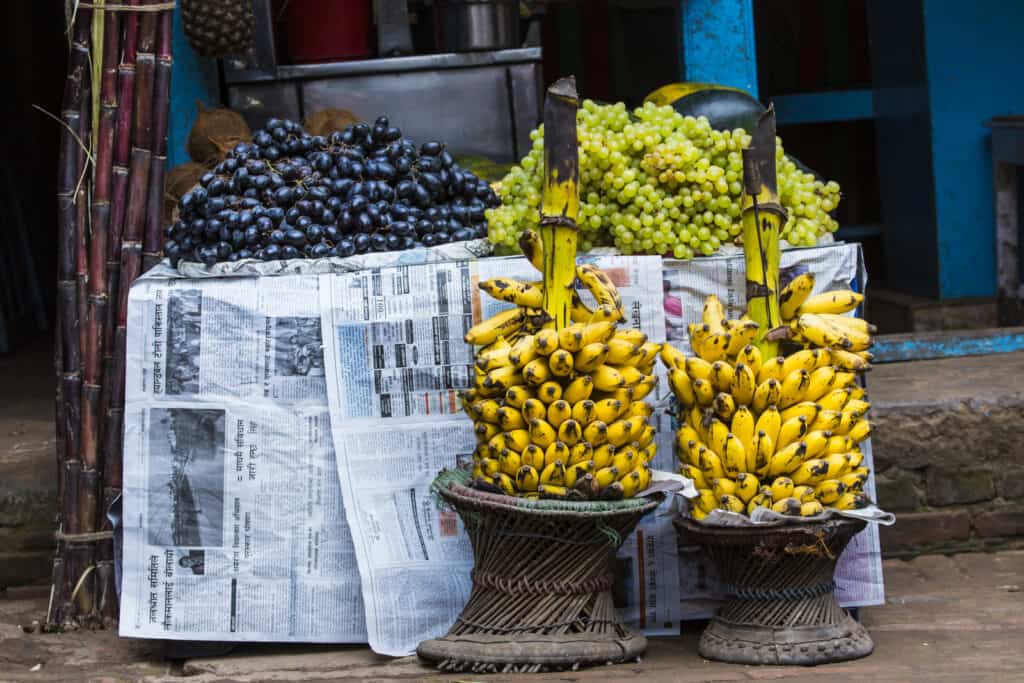
Walking through Thamel you might be stopped by a “desperate” mother asking you to buy milk or rice for her starving baby.
My advice is: Don’t.
This is a scam ran throughout Asia with many tourists in Nepal, Myanmar and especially India falling for the starving mom act.
Basically, what happens is that a mother will stop you on the street and ask you to buy rice, oil and milk for her and her baby. They are hungry, or so she says. The tourist accepts and gets taken to a shop. The tourist will buy an expensive (to local standards) bag of rice, pot of milk, can of oil and will be pushed by the mother to buy more and more valuable items.
After the transaction is done, the mother will thank you and disappear. She will then hurry off to a local market or to a local shop where she will resell the products you just bought for her.
If you WANT to help someone I would, again, donate to a local charity.
I have to say that I have been seeing this scam less and less around Thamel and Kathmandu – but that doesn’t mean it isn’t still going on.
Karl Rock – an AMAZING youtuber I follow, did a great video on this!
Do not wear leather when visiting temples.
Planning on visiting a temple? Make sure you are not wearing leather shoes or belts. As cows are seen as holy animals in Nepal, it is rude to wear leather items when visiting a temple.
You might even be asked to leave when they notice you wearing a belt. Instead you can wear a cloth belt – the 00’s are calling (I know) but this will make it easier for you to adhere to local laws, local customs and to respect local religion.
Do not offer money and gifts with your left hand
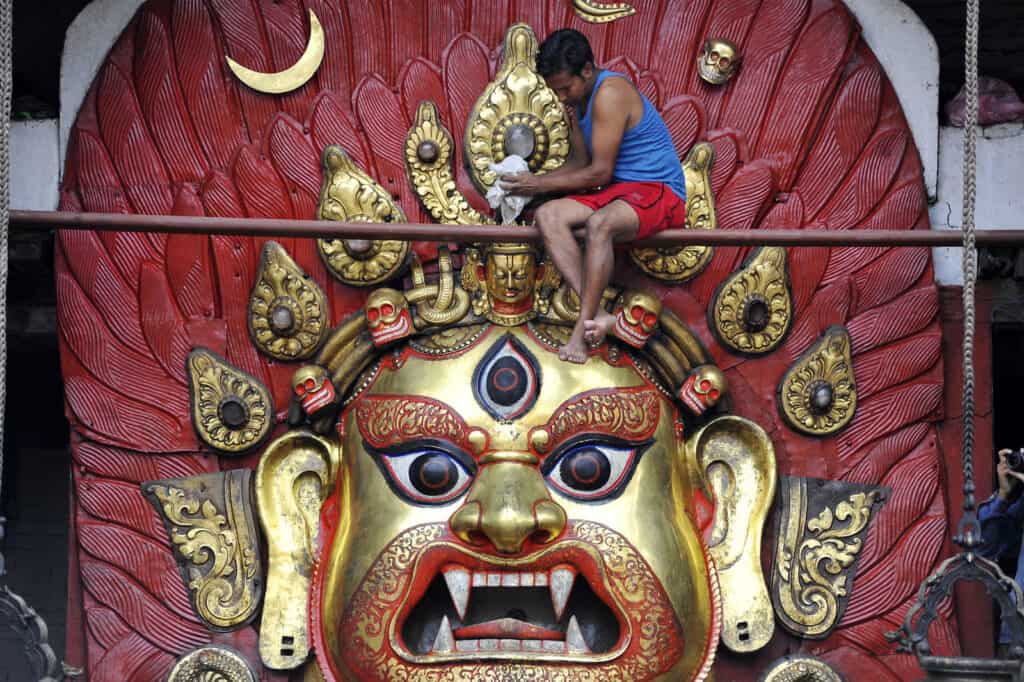
When you are offering money or gifts to locals in Nepal you will want to use your right hand and your right hand only.
It can be very disrespectful, especially when travelling through more rural parts of Nepal, when you offer money or gifts or goods with your left hand.
When you want express that you are NOT satisfied with the product or the service, you can show this by offering money with your left hand. But do keep in mind that this is considered to be rude.
Yes, indeed: in Kathmandu and especially in Thamel people actually understand that tourists often don’t know about this and that people use their hands – left OR right, often without thinking. So although in big cities like Kathmandu and Pokhara using your left hand will not be a massive deal, you might want to keep this in mind when backpacking through rural villages.
Want to be super polite? Offer money and gifts with both hands and lean forward a bit. You will see many people do this in supermarkets.
Do not leave your shoes on when entering someone’s house
People who have traveled through Asia before will know that taking off your shoes before entering someone’s house is an absolute MUST!
It is very rude to not take off your shoes when you enter someone’s house. I remember once in Pai, Thailand – when the little Punk bar was still in the tiny hut just off the main road, that the owner (who is an amazing guy) asked customers to take off their shoes before going to the toilet as the toilet of the bar was literally this guy’s own bathroom – and we had to walk through his house!
Anyway, when you are welcomed into the house of a local, be sure to OR ask if you need to take off your shoes OR just take off your shoes anyway. Whatever you do, don’t be that rude tourist that walks into someone’s living room with shoes on.
Don’t do drugs (seriously!)
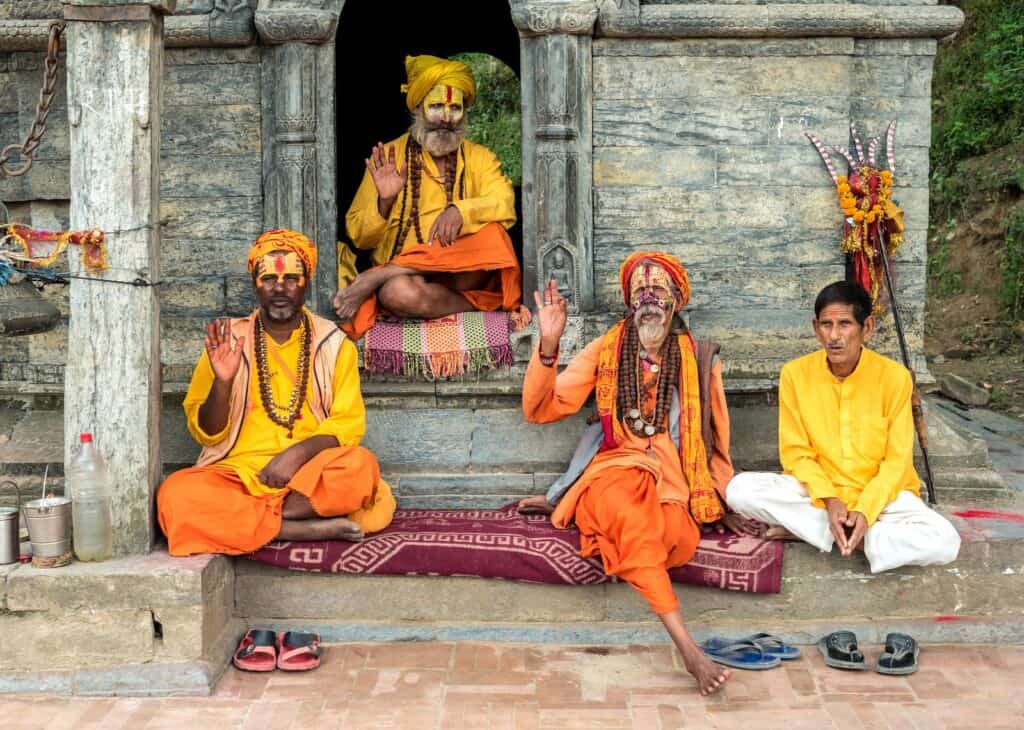
Although you might smell a familiar “green” smell in some of the Hindu temples, smoking weed or hashish is actually illegal in Nepal.
It’s true that holy men can legally smoke marijuana (Thanks Shiva) and that the stuff literally just grows on the Kathmandu hillsides, smoking weed is actually illegal and can land you in jail or with a massive fine.
Nepal is not as bad as Indonesia where drug traffickers get the death penalty, but I wouldn’t want to be caught with a joint in my hand or weed in my pocket.
When walking through the city, shady men will often try and talk to you to ultimately offer some drugs. Just kindly decline and walk on without giving them another look.
It is true that Nepal is looking into legalising marijuana, but this has not happened yet. The only reason why Nepal criminalised Marijuana was because the USA asked them to as many Americans on the hippie trail smoked weed. Now Marijuana is legal in parts of the USA, and since other Asian countries like Thailand have recently legalised the use and sale of weed, it would in fact be a big income for Nepal to allow tourists to buy and use Marijuana.
Do not say Gautam Buddha was born in India.
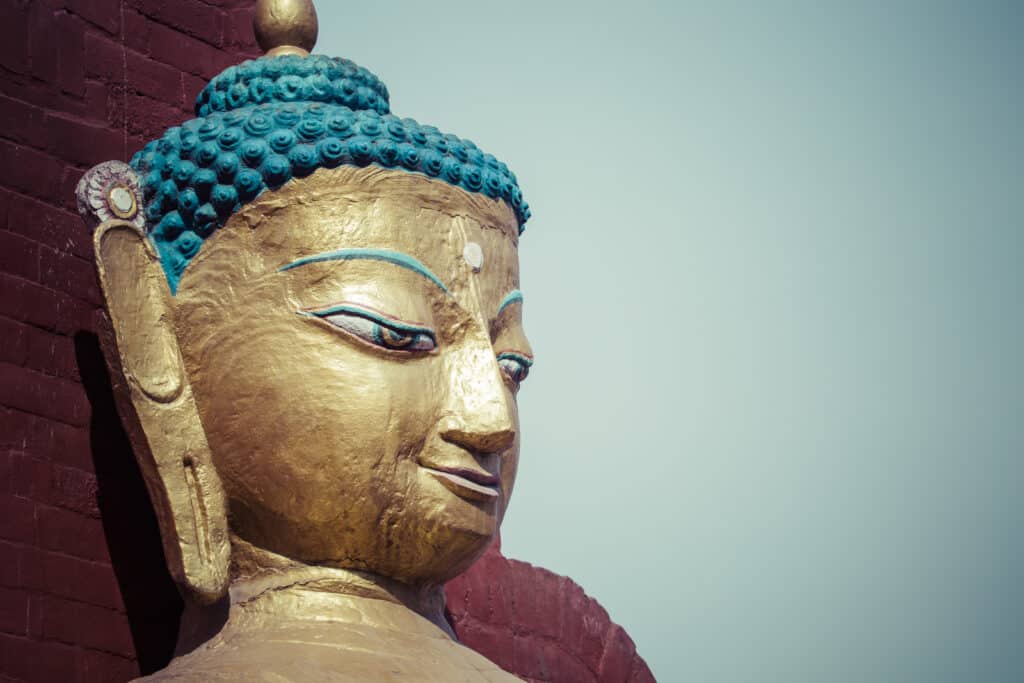
The Nepali people are very proud of the fact that Gautam Buddha was born in Limbini Nepal. It is a great offence to say otherwise. However, many Indian people believe that Gautam Buddha was born in India.
Why?
Well, Gautam Buddha meditated and died in India. Many Indians say India is the country of The Buddha which is in fact true (he spent massive amounts of his life there) but that does spark the lie that he was also born in India.
It would be the same is saying “Van Gogh was French and born in France” while he was actually born in The Netherlands and lived and died in France. I know quite a few Dutch people who would be very worked up when they would hear someone claim Van Gogh for the French.
Actually, it is very interesting to read up on this because both Nepali people and Indians are incredibly fierce and fiery about this discussion – and rightfully so.
Do not touch someone’s head or show the bottom of your feet
Just like in Thai culture, it can be seen as very rude to show the bottom of your feet or have the bottom of your feet turned upward.
Another thing you might want to avoid is touching someone’s head. This is also seen as very disrespectful.
Do not accept the first price you are quoted (Haggle!!!!)
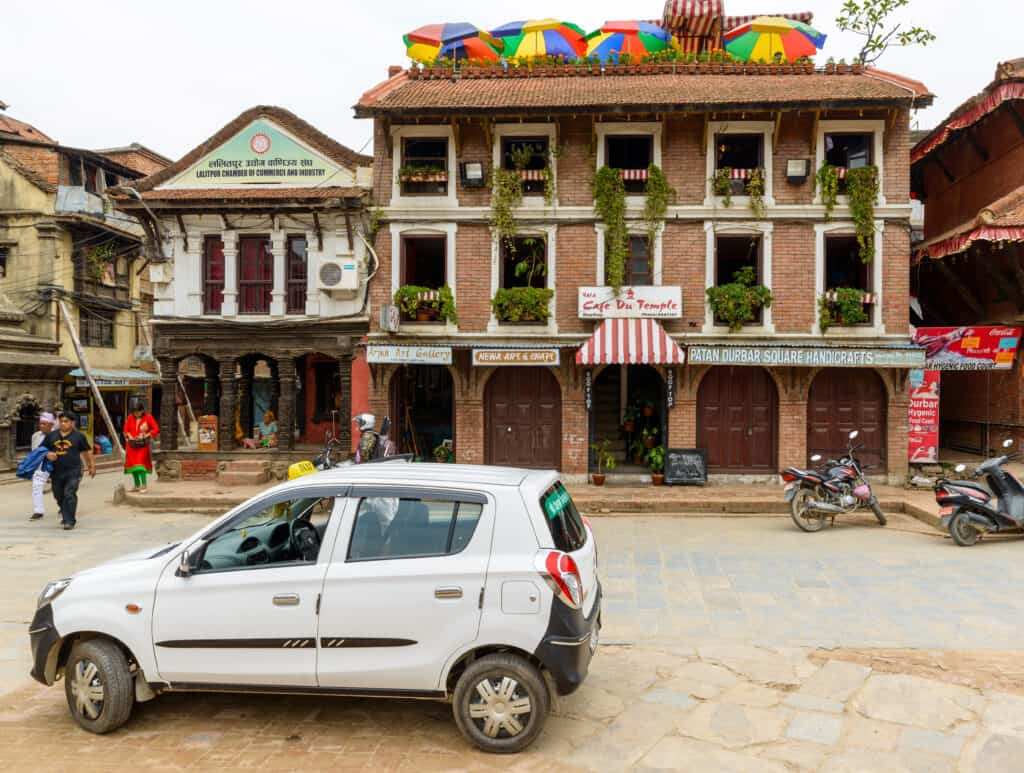
Tourists can be very stupid, and taxi drivers and shop keeper shave clocked on. We were literally quoted $10 on a $2 cab ride and ultimately paid $3.
Although we knew they were taking the piss, it is important not to accept the first price you are quoted unless the price was specified beforehand in a supermarket or corner shop. Prices in tourist shops or non-metered cab fares are always negotiable!
The app Fare Finder will help you to determine a fair fare (just add 100 to 150 rupees as they will often see you as a tourist milking cow). If you think the price quoted is too high and you find it difficult to haggle it down? Just walk away. There will be more shops/cabs that will actually be open to negotiation. Walking away also shows that you are serious and might prompt the shop keeper or cab driver to chase after you with a much better offer.
It happened to us: we walked away from a cab driver and he literally followed us in his car down the street offering the original price we started negotiating from!
How to know what to pay for a taxi ride?
When entering Nepal, it is a good idea to get a sim card. Sim cards and data are super cheap here in Nepal (About $3 for 9 gig), so it would be crazy not to! When you have a Nepali sim card and data, you should download the Pathao app. Pathao is a tad like Uber but for cabs. It gives you a price estimate and will connect you with a taxi driver in the area without having to haggle. You can use JHPT1 to get a discount on Pathao when you first sign up.
Even when there are no taxi drivers in the area, you can use the price from Pathao to negotiate with a taxi driver. Especially around tourist areas it is often a good idea to check the price on Pathao. Otherwise you will end up paying 800 NPR for a 300 NPR trip.
Lieze Neven is a globetrotting travel writer and expat currently based in Nepal. With a passion for exploration, she has lived in Dubai, the UK, and Belgium, alongside her international teacher husband. Her parents live in France and she tries to visit Paris at least once a year. Together, they travel the world looking for the best hotels, experiences and food locations have to offer!

Although its true about hindu, its not true about Buddhists population in nepal, All bothya population, Tamang, Gurung, Sherpa, Magar, including Tibetan are eating cow.
Hi! Yes! I will need to update the post because I now live in Nepal and have found that I made a lot of wrong assumptions!
False, I am a Tibetan and we do consume cow but it does not align with the actual teachings and practice of lord buddha and the greater dharmic faith, you’ll notice stern monks and followers from Tibet or Ladakh will altogether avoid meat especially PORK. Main reason being, pork is extremely unhygienic and one of the most sinful animals to consume. Also, note that neither Gurung or Magar are bhotiya, ONLY sherpas, tamangs and tibetans would fall under that category, as well as people from Mustang, and Manang.
No not all of them.. that means you are muslim
Yes you are right, some Buddhists may eat beef but definitely will never slaughter or kill a cow and eat the meat.
No we don’t eat cows !!!
yeah i am nepali and this all thing are true😂😂